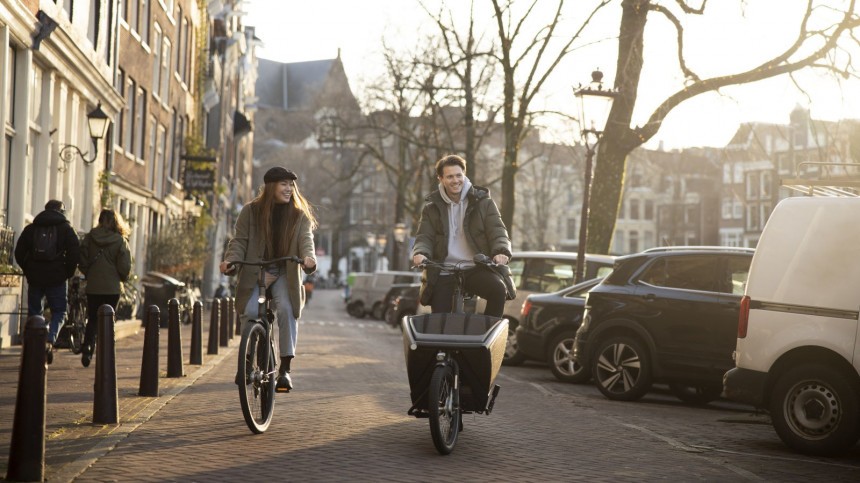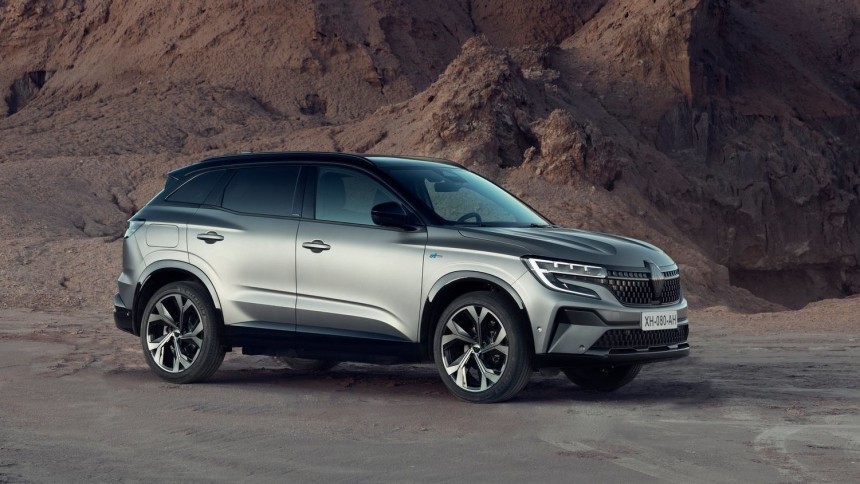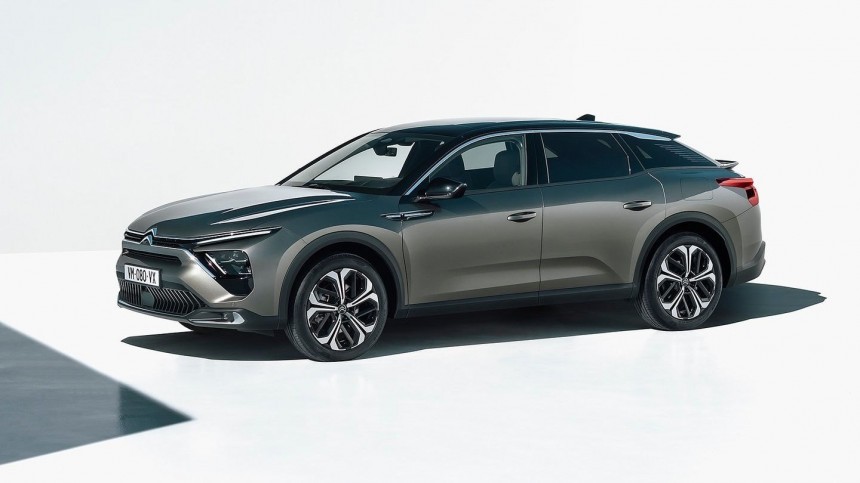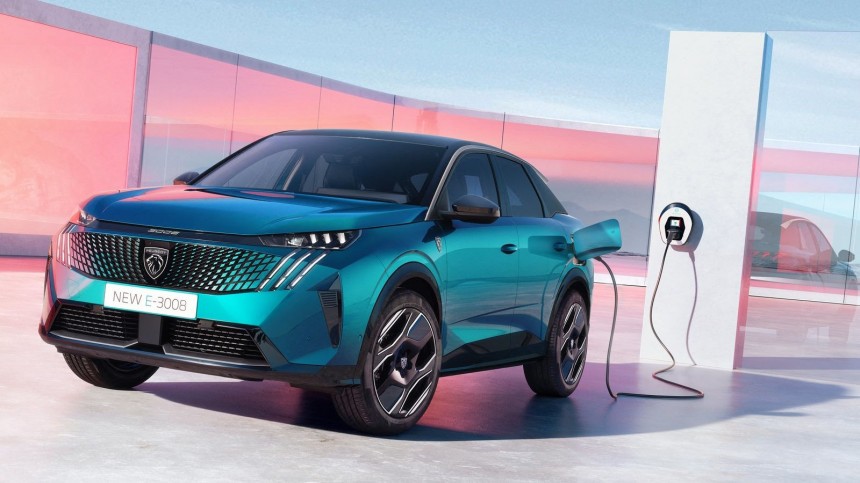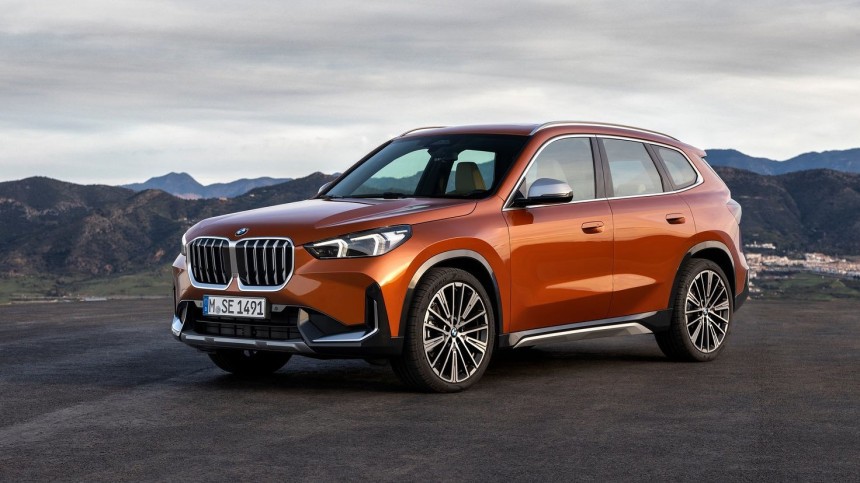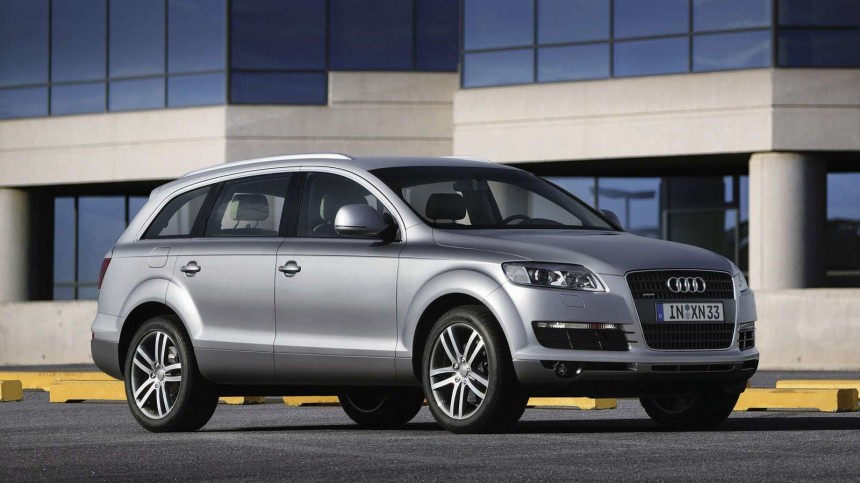On Sunday, February 4, in the Paris referendum, more than half of the voters basically chose to "tax the rich" because, according to officials, SUVs and other large and heavy sedans are used mainly by the richest. While it may look like social justice, I see it as more a socialist populism than an optimum solution to the increasing problems the SUVs and other large cars are accused of by Parisians.
In short, SUVs and sedans weighing more than 1.6 tons will pay €12 ($13) an hour for parking spaces in Paris and even €18 ($19.5) an hour in the city center. Electric passenger cars are also subject to this price hike, but their weight limit was raised to 2 tons.
There were fewer voters than in last year's referendum on the rental electric scooter ban, when 7% of voters expressed their will. While SUVs are obviously larger and "in your face" than electric scooters (which, by the way, spew no harmful pollutants in the air Parisians breathe, as ICE or hybrid SUVs do), Paris's officials were more lenient to SUVs.
Anne Hidalgo has been the mayor of Paris for ten years now, so you can bet she knows more than a thing or two about the French capital's most stringent issues. One of them is traffic pollution, which is not only caused by burning oil-based fuels in internal combustion engines (doh!) but also aggravated by congestion.
Hidalgo is also known for her "war on cars," as, over the years, she supervised many measures meant to prioritize public transit, cyclists, and pedestrians. As a result, compared to the '90s, journeys by car have almost halved in the 2020s.
Wait, did I just say that FEWER people drive in Paris than before? Then, what's this SUV attack all about? According to officials, private cars are used mainly by the richest. As almost half of the public space is occupied by parking spots, the idea is that it's better to give it back to people as bike lanes, walking spaces, or public transit.
At this point, I should note that Hidalgo is a member of the Socialist Party, which currently hopes to regain its former glory on the French political scene. It may seem odd or even inappropriate to bring politics into the discussion on an automotive website like Autoevolution, but I'm doing this to give you the context.
It can be summarized simply as the good old "tax the rich," which is nothing new for socialism. For sure, "the deprived" will feel vindicated because those "filthy rich" drivers will pay more for parking their "opulent status-quo vehicles" in Paris.
On the other hand, Paris is constantly in the TOP 10 of the most expensive European cities. So, most of its inhabitants are hardly "deprived," as the rental and purchase prices are very high, and so are the utilities or groceries. Let's be clear: people using bicycles or public transit are not poor but simply civilized modern citizens.
Or it just makes you look rich, as popular wisdom labeled SUVs over the years. While the first modern SUV was the three-door city-dwelling less-than-4-meter long Toyota RAV4 in 1994, it was the Jurassic Park movie's four-wheel drive star Mercedes-Benz M-Class that really sparked the public's interest for luxury SUVs.
It was followed by the BMW X5, Volkswagen Touareg, and Audi Q7 – all more expensive, heavier, and larger than the large sedans' platform they were based on, such as the BMW 5-Series or Audi A6. Over the years, almost all the car makers joined this SUV and crossover game, and a flock of models flooded the market.
Twenty years after the RAV4 launch, in 2023, Europe witnessed a more-than-fifty-percent SUV share in new car sales for the first time. That's because almost every regular car platform has an SUV (or SUV-ish) derivate, usually at the same level of interior space, trim, and prices as hatchbacks or sedans using a superior platform.
But the SUV style is much trendier. For instance, there are more SUVs and crossovers in Renault's lineup in France than regular passenger cars. The same goes for Citroen and Peugeot, the other well-known French car makers. However, the recent referendum will impact just a few of their models.
This hybrid powertrain is the only option for the 21 cm / 8 in longer Espace and 4-door-coupe Rafale, and that's why these derivatives are heavier than the 1.6 tons limit. So, these models are out of luck regarding the parking fee.
They are also €10,000 / $10,700 more expensive than the entry-level Austral, with a basic price tag of €35,500 / $38,200), so you could say there's some "social justice" here. However, the 200 hp powertrain is more economical than the 130 hp mild-hybrid one by more than 2 l/100 km in city traffic, so there's some injustice regarding pollution reduction, huh?
Citroen's flagship is the C5 X 4.8 meter-long crossover, a larger car than Renault's top-of-the-line SUVs. Still, C5 X's basic variant, powered by a three-cylinder 1.2 liter 130 hp turbo gasoline engine, weighs less than the 1.6 tons limit. So, how come a larger car – which obviously needs more space in traffic or parking lots – won't be subjected to the park fee increase?
The plug-in hybrid variant, advertising a theoretical 62 km / 38 miles pure-electric range, is around 1.8 tons – Paris officials didn't make it clear if plug-in hybrids are considered simply hybrids (which I agree) or if they're part of the "electric vehicles" syntagm.
The funny thing is that the C5 SUV is shorter by almost 30 cm / 12 in than the C5 X crossover, but it sports the same weight problems: the plug-in hybrid variants are over the 1.6 tons limit, while the powertrains with higher consumption values are right under that limit. Of course, the difference in pricing is pretty steep – the plug-in variant is more expensive than the little turbo gasoline by more than €10,000 / $10,700.
The lion is surely pissed off because the hybrid variants of Peugeot's largest SUVs, the compact SUVs 3008 and 5008, are just some tens of kilos above the 1.6 tons limit. Moreover, the 100% electric 3008 is penalized by its almost 2.2 tons, more than the 2.0 tons limit for EVs.
It's really unfair for this 4.5-meter-long electric SUV to pay three times more for parking than a longer estate like 508 SW, measuring almost 4.8 meters in length but weighing less than 1.6 tons with its 136 g/km CO2 gasoline variant.
Of course, the primary "victims" of the new parking fee hike are the expensive "Made in Germany" SUVs, like BMW X5/X6, Audi Q7/Q8, or Mercedes-Benz G/GLE/GLS. But you'd be surprised that many other less expensive cars are eligible for the higher parking tax.
For instance, only the GLA 180 and 200 (powered by the same gasoline engine, but with different powers) weighs under the 1.6 tons limit; the rest of the Mercedes-Benz SUV and crossover lineup is over that limit and way over it in some instances.
In the EV realm, only the EQT (basically a rebadged Renault Kangoo…) weighs less than the 2.0 tons limit. The rest of Mercedes-Benz's electric passenger sedans and SUVs will have to pay more for parking in Paris.
The same goes for Audi and BMW, more or less: some variants of Audi Q2 and Q3 SUVish models weigh less than the 1.6 tons limit, while only the entry-level gasoline variant of BMW X1 is under that limit. The rest of Audis and BMWs are heavier, and even the most affordable electric variants are over the 2.0 tons limit.
Japanese or South Korean SUVs are no exception; neither are Volvo, Alfa Romeo, and many other brands. While there are few examples of expensive larger cars that are lighter than smaller and more affordable ones, generally speaking, the Paris referendum is clearly a slap in the face of carmakers. Or over their SUV-fan customers.
So, if you live in Paris, having a half-a-million-dollar opulent Rolls Royce Cullinan parked on your spot won't be an issue. I'm just mean, I know, but I wonder if those who can afford €50,000 / $54,000 or even €100,000 / $108,000 premium and luxury SUVs will give a damn about this price hike.
After all, as popular wisdom teaches us, "the richest" go for SUVs for the status quo and to show off, right? I suspect there won't be many willing to give up their fancy SUVs when going out Friday night to a restaurant or a club, where a few hours of more expensive parking won't hurt that much the budget.
And you know what? I think Paris's officials believe the same, as they forecast a rise in parking fee income of about €35 / $38 million yearly. That's because, as London's low-emission zone example showed, people are willing to pay more for their comfort than to change their habits overnight.
You can't expect someone driving a BMW X5 to choose a smaller and less equipped 1-Series or, even worse, a bicycle or public transport unless you force him by banning heavy, large, and polluting vehicle access in the area. Yes, that's right, a very unpopular SUV-ban.
For now, the price hike for parking will most probably have a visible effect on those driving older SUVs and large cars. Their used car market value is much lower, and their owners are at most "moderately rich," but not that rich to not care about the impact of tripling the parking fee.
In my eyes, the only positive side of this measure is that many sizeable old diesel cars could be gradually removed from Paris traffic. Hopefully, by September, when the new measure should come into force, many people will give up their guzzlers.
But this is a big IF, as this year's elections are a sensitive topic. Because of the extremism wave and all that fake news and manipulation we witness every single day, bold decisions can have a boomerang effect. Just look at how those farmers' protests tend to blow up the European Green Deal.
Of course, an SUV ban is too drastic, even for the socialist mayor Hidalgo administration. I mean, last year, authorities postponed for 2025 the ban on old and polluting diesel and gasoline cars (registered before 2011 and 2006 respectively). It was considered a too harsh measure in a country where the "Yellow Vests" movement could spark a new revolution.
In my humble opinion, Paris's decision shouldn't be followed by other cities. I find this "war on SUVs" clumsy, if not a little dumb. Increasing the cost of parking for heavy and large SUVs is inefficient, while simply not allowing them to park will surely solve the congestion and pollution issues better. If you can't park your car there, you won't drive there, right?
However extremist this measure may sound, I'm sure the 11 million Parisians agree that the air they breathe is more important.
Targeting "the richest" in one of the most expensive European capitals
I should note that less than 6% of Paris's registered voters attended this referendum, and 54.6% chose the parking fee increase for what Anne Hidalgo, Paris's mayor, called "expensive, heavy and polluting cars."There were fewer voters than in last year's referendum on the rental electric scooter ban, when 7% of voters expressed their will. While SUVs are obviously larger and "in your face" than electric scooters (which, by the way, spew no harmful pollutants in the air Parisians breathe, as ICE or hybrid SUVs do), Paris's officials were more lenient to SUVs.
Anne Hidalgo has been the mayor of Paris for ten years now, so you can bet she knows more than a thing or two about the French capital's most stringent issues. One of them is traffic pollution, which is not only caused by burning oil-based fuels in internal combustion engines (doh!) but also aggravated by congestion.
Hidalgo is also known for her "war on cars," as, over the years, she supervised many measures meant to prioritize public transit, cyclists, and pedestrians. As a result, compared to the '90s, journeys by car have almost halved in the 2020s.
At this point, I should note that Hidalgo is a member of the Socialist Party, which currently hopes to regain its former glory on the French political scene. It may seem odd or even inappropriate to bring politics into the discussion on an automotive website like Autoevolution, but I'm doing this to give you the context.
It can be summarized simply as the good old "tax the rich," which is nothing new for socialism. For sure, "the deprived" will feel vindicated because those "filthy rich" drivers will pay more for parking their "opulent status-quo vehicles" in Paris.
On the other hand, Paris is constantly in the TOP 10 of the most expensive European cities. So, most of its inhabitants are hardly "deprived," as the rental and purchase prices are very high, and so are the utilities or groceries. Let's be clear: people using bicycles or public transit are not poor but simply civilized modern citizens.
Where do you draw the line for the "monsters on wheels?"
As you know, SUV stands for Sports Utility Vehicle and usually describes a larger car with a generous interior, higher ground clearance, and bigger wheels than a regular sedan or hatchback. It often has a 4x4 wheel drive and makes you dream of unheard adventures in the wild.Or it just makes you look rich, as popular wisdom labeled SUVs over the years. While the first modern SUV was the three-door city-dwelling less-than-4-meter long Toyota RAV4 in 1994, it was the Jurassic Park movie's four-wheel drive star Mercedes-Benz M-Class that really sparked the public's interest for luxury SUVs.
Twenty years after the RAV4 launch, in 2023, Europe witnessed a more-than-fifty-percent SUV share in new car sales for the first time. That's because almost every regular car platform has an SUV (or SUV-ish) derivate, usually at the same level of interior space, trim, and prices as hatchbacks or sedans using a superior platform.
But the SUV style is much trendier. For instance, there are more SUVs and crossovers in Renault's lineup in France than regular passenger cars. The same goes for Citroen and Peugeot, the other well-known French car makers. However, the recent referendum will impact just a few of their models.
Vive the French, hasta la vista Germans
In the case of Renault, the 4.5 meter-long Austral SUV (using the same CMF platform as the compact hatchback Megane) weighs just under the 1.6 tons limit, even with the top-of-the-line variant (the 200 hp full-hybrid front-drive).They are also €10,000 / $10,700 more expensive than the entry-level Austral, with a basic price tag of €35,500 / $38,200), so you could say there's some "social justice" here. However, the 200 hp powertrain is more economical than the 130 hp mild-hybrid one by more than 2 l/100 km in city traffic, so there's some injustice regarding pollution reduction, huh?
Citroen's flagship is the C5 X 4.8 meter-long crossover, a larger car than Renault's top-of-the-line SUVs. Still, C5 X's basic variant, powered by a three-cylinder 1.2 liter 130 hp turbo gasoline engine, weighs less than the 1.6 tons limit. So, how come a larger car – which obviously needs more space in traffic or parking lots – won't be subjected to the park fee increase?
The plug-in hybrid variant, advertising a theoretical 62 km / 38 miles pure-electric range, is around 1.8 tons – Paris officials didn't make it clear if plug-in hybrids are considered simply hybrids (which I agree) or if they're part of the "electric vehicles" syntagm.
The lion is surely pissed off because the hybrid variants of Peugeot's largest SUVs, the compact SUVs 3008 and 5008, are just some tens of kilos above the 1.6 tons limit. Moreover, the 100% electric 3008 is penalized by its almost 2.2 tons, more than the 2.0 tons limit for EVs.
It's really unfair for this 4.5-meter-long electric SUV to pay three times more for parking than a longer estate like 508 SW, measuring almost 4.8 meters in length but weighing less than 1.6 tons with its 136 g/km CO2 gasoline variant.
For instance, only the GLA 180 and 200 (powered by the same gasoline engine, but with different powers) weighs under the 1.6 tons limit; the rest of the Mercedes-Benz SUV and crossover lineup is over that limit and way over it in some instances.
In the EV realm, only the EQT (basically a rebadged Renault Kangoo…) weighs less than the 2.0 tons limit. The rest of Mercedes-Benz's electric passenger sedans and SUVs will have to pay more for parking in Paris.
The same goes for Audi and BMW, more or less: some variants of Audi Q2 and Q3 SUVish models weigh less than the 1.6 tons limit, while only the entry-level gasoline variant of BMW X1 is under that limit. The rest of Audis and BMWs are heavier, and even the most affordable electric variants are over the 2.0 tons limit.
Taxing the status quo? Or simply banning it?
According to officials, the higher parking fees will affect some 10 to 15% of the cars roaming Paris roads. But there will also be some exceptions, like Paris residents using their authorized parking places.So, if you live in Paris, having a half-a-million-dollar opulent Rolls Royce Cullinan parked on your spot won't be an issue. I'm just mean, I know, but I wonder if those who can afford €50,000 / $54,000 or even €100,000 / $108,000 premium and luxury SUVs will give a damn about this price hike.
After all, as popular wisdom teaches us, "the richest" go for SUVs for the status quo and to show off, right? I suspect there won't be many willing to give up their fancy SUVs when going out Friday night to a restaurant or a club, where a few hours of more expensive parking won't hurt that much the budget.
And you know what? I think Paris's officials believe the same, as they forecast a rise in parking fee income of about €35 / $38 million yearly. That's because, as London's low-emission zone example showed, people are willing to pay more for their comfort than to change their habits overnight.
You can't expect someone driving a BMW X5 to choose a smaller and less equipped 1-Series or, even worse, a bicycle or public transport unless you force him by banning heavy, large, and polluting vehicle access in the area. Yes, that's right, a very unpopular SUV-ban.
In my eyes, the only positive side of this measure is that many sizeable old diesel cars could be gradually removed from Paris traffic. Hopefully, by September, when the new measure should come into force, many people will give up their guzzlers.
But this is a big IF, as this year's elections are a sensitive topic. Because of the extremism wave and all that fake news and manipulation we witness every single day, bold decisions can have a boomerang effect. Just look at how those farmers' protests tend to blow up the European Green Deal.
Of course, an SUV ban is too drastic, even for the socialist mayor Hidalgo administration. I mean, last year, authorities postponed for 2025 the ban on old and polluting diesel and gasoline cars (registered before 2011 and 2006 respectively). It was considered a too harsh measure in a country where the "Yellow Vests" movement could spark a new revolution.
In my humble opinion, Paris's decision shouldn't be followed by other cities. I find this "war on SUVs" clumsy, if not a little dumb. Increasing the cost of parking for heavy and large SUVs is inefficient, while simply not allowing them to park will surely solve the congestion and pollution issues better. If you can't park your car there, you won't drive there, right?
However extremist this measure may sound, I'm sure the 11 million Parisians agree that the air they breathe is more important.








